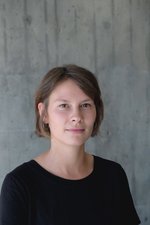The real labs developed in Baden-Württemberg are a joint field of experimentation for society, politics and science. The focus is on developing sustainable solutions for climate protection. The state continues to fund the model with six million euros.
One of the five funded reallab projects is that of the HFT Stuttgart together with the Nürtingen-Geislingen University of Applied Sciences (HfWU). It focuses on the culture of mobility in civil society.
The real lab coordinated by HfWU has the title "Sustainable mobility through sharing in the neighborhood" (MobiQ). Mobility is the prerequisite for the economy and society to function. Today, however, it is undergoing a profound transformation process.
Developing sharing services with citizens
MobiQ takes this process as an opportunity to address the challenge that lasting sustainability effects in transportation require not only technological and economic transformations, but also social innovations of a civil society mobility culture. The project addresses the upcoming social and ecological challenges resulting from the different use forms of mobility. The state Ministry of Science is funding the project with a total of nearly 1.1 million euros.
Three neighborhoods are being studied by the project partners: real lab Geislingen, real lab Stuttgart-Zuffenhausen - Rot and real lab Waldburg. "We want to achieve that we develop economically viable concepts not only for the citizens but with them, especially where sharing offers have not been successful so far," said Prof. Dr. Christina Simon-Philipp, head of the Center for Sustainable Urban Development at HFT Stuttgart and Verena Loidl, urban planner at HFT, who is accompanying the project. In addition, initiatives are to be promoted for inclusive, barrier-free and gender-appropriate mobility. Transfer to current processes in Baden-Württemberg are also planned - as part of the International Building Exhibition IBA `27 and the Strategic Dialogue on the Automotive Industry (SDA). "Our aim is to provide impetus for the civil society design of sustainable mobility," say researchers Simon-Philipp and Loidl.
Ministerin Bauer: Lösungen, um Klimaneutralität voranzubringen
"Climate-friendly mobility and urban development or the careful consumption of resources are of the greatest relevance to our society," said Science Minister Theresia Bauer in reference to the continued funding of the real labs. As a successful model in Baden-Württemberg, they could make an important contribution here. "Our goal is to strengthen the cooperation and exchange of universities with partners from local politics, administration, civil society and business. Together and with a scientific perspective, they should develop feasible solutions to advance climate neutrality," the minister said in Stuttgart. With the funding of five "Real Laboratories Climate", the Ministry of Science continues the funding with a total of six million euros over an initial period of three years.
In addition to the HfWU, the Karlsruhe Institute of Technology (KIT), Reutlingen University, the University of Stuttgart and the University of Ulm will receive funding. The real labs have been supported by the Ministry of Science since 2015. Until 2020, 14 real labs with a focus on science for sustainability and extensive accompanying research were funded with a total of 20 million euros in two funding lines - "Real labs - BaWü-Labs" and "Real lab Stadt".
![[Image: HFT]](/fileadmin/Dateien/Forschung/_processed_/6/3/csm_MobiQ4_d3fc61ebf7.jpeg)
![[Image: HFT]](/fileadmin/Dateien/Forschung/_processed_/b/d/csm_MobiQ5_65f75e7c75.jpeg)
![[Image: HFT]](/fileadmin/Dateien/Forschung/_processed_/2/4/csm_MobiQ7_94190face2.jpeg)

